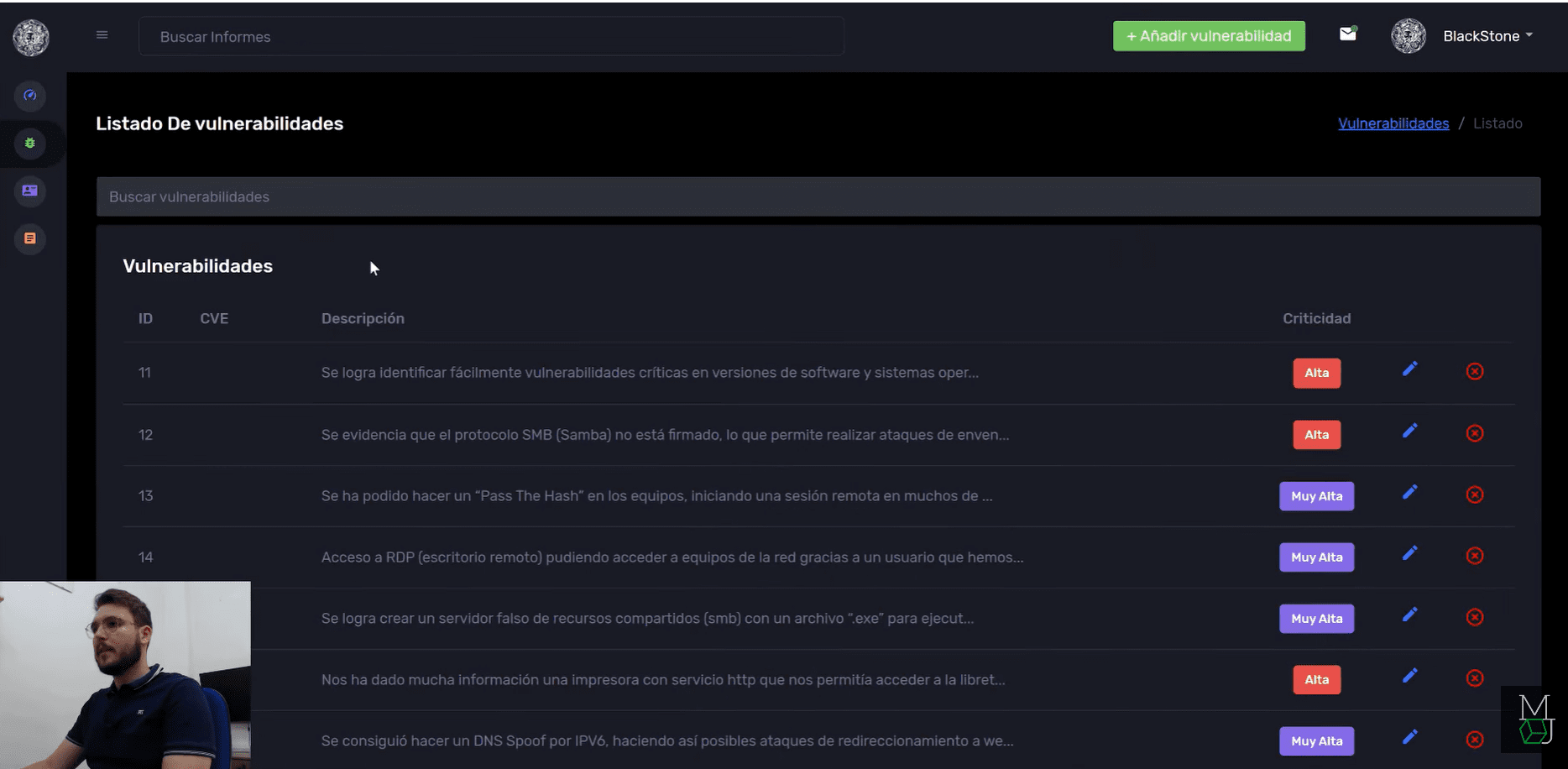
BlackStone Project
BlackStone project or “BlackStone Project” is a tool created in order to automate the work of drafting and submitting a report on audits of ethical hacking or pentesting.
In this tool we can register in the database the vulnerabilities that we find in the audit, classifying them by internal, external audit, or wifi, in addition, we can put your description and recommendation, as well as the level of severity and effort for its correction. This information will then help us generate in the report a criticality table as a global summary of the vulnerabilities found.
We can also register a company and, just by adding its web page, the tool will be able to find subdomains, telephone numbers, social networks, and employee emails…
Installation
Docker Install
git clone https://github.com/micro-joan/BlackStone
cd BlackStone
docker-compose up -d
User: blackstone
Password: blackstone
Manual Install
- First, we must download an Apache server to host the tool, in my case I use Mamp (I recommend following these steps): https://www.mamp.info/en/downloads/
- We will download the content of this repository and we will have 2 folders (BlackStone and BBDD)
- Once the server starts we will go to c://MAMP/htdocs and paste all the contents of the downloaded folder “BlackStone”
- For the application to work we will have to import the database, we will go to our browser and write “localhost/phpMyAdmin/”, you have the database connection file in the folder BlackStone/conexion.php
- We will create a database called blackstone and import the data from the downloaded BBDD folder
- Log in to BlackStone with the username and password “blackstone”
Use
First, you need to go to profile settings and add Hunter.io and haveibeenpwned.com tokens:
After having vulnerabilities in the database, we will go to the audited client and we will register a client along with their web page, once registered we can go to customer details and we can see the following information:
- Name of business owner
- Social networks of the company owner
- Email and telephone number of the owner of the company
- Exposed password check on the company owner’s deep web
- Subdomains of the website as well as information of interest found on google
- Emails of company workers
Once we have the company that we are going to audit registered in the database, we will create a report, adding the date, name of the report and the company to which will be audited. When we register the report, we will give it edit, and then we will select the vulnerabilities that we want to appear in the report:
Finally, we will generate the report by clicking on the “overview report” button, and later we will save the page that is generated as “.mht”, then we will open it with Word to be able to work on the generated report:
Demo
Source: https://github.com/micro-joan/



